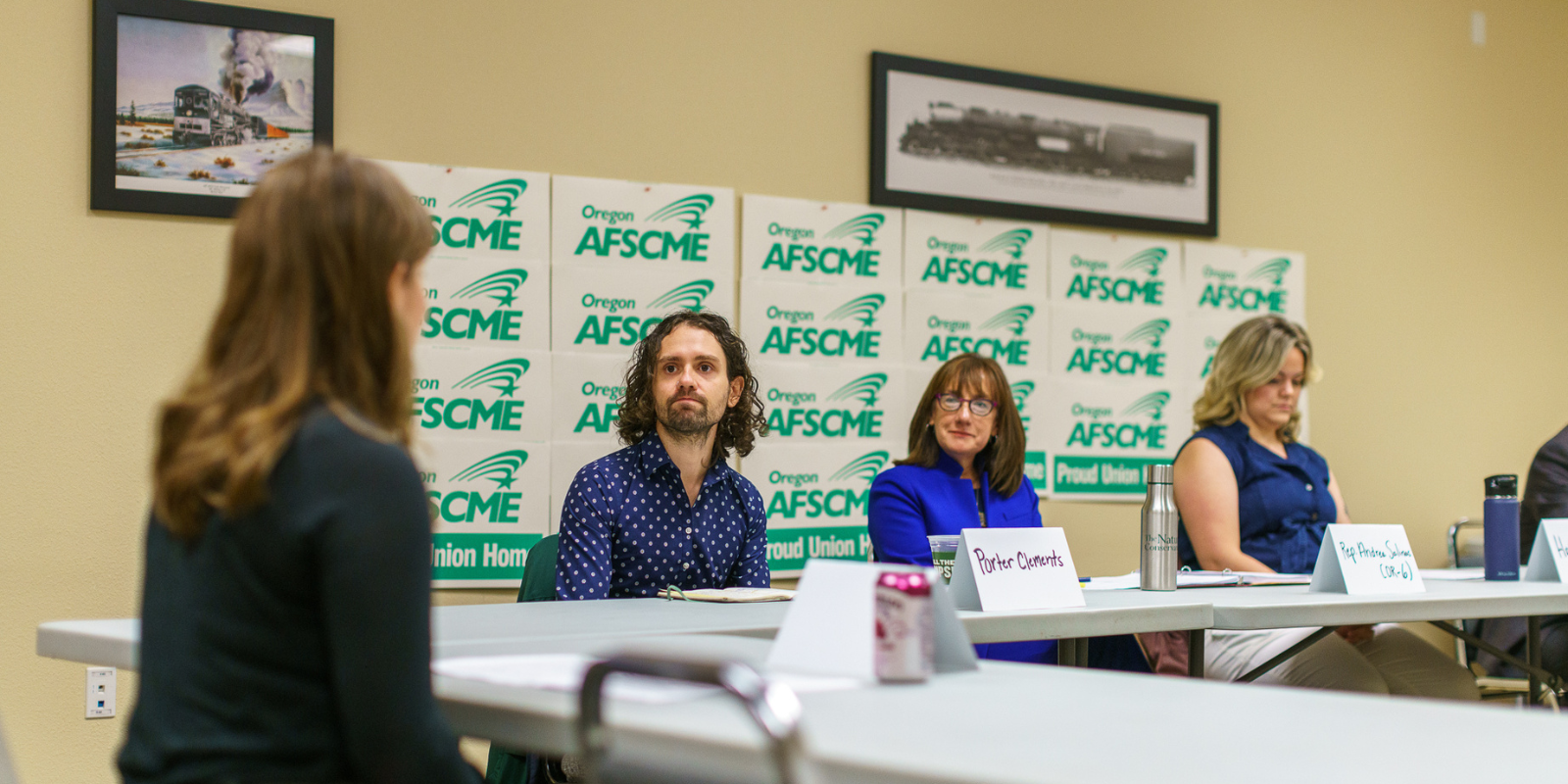Last week, to recognize World Mental Health Day, an AFSCME behavioral health worker from Oregon joined Rep. Andrea Salinas (D-Oregon), co-chair of the bipartisan Mental Health Caucus, and other professionals in the behavioral health field in a roundtable talk to discuss the challenges facing caregivers and barriers to the crucial services they provide.
Chief among those challenges, according to Porter Clements, a bilingual outreach and enrollment specialist at Outside In and president of AFSCME Local 1790, is short staffing.
“There are of course many contributing factors [to short staffing],” said Clements, who connects clients with the services they need. “Issues like workplace violence, pay and benefits, make it difficult for people who want to be here to stay here. It’s really a cyclical relationship between them all.”
The clients where Clements works, Outside In, are experiencing homelessness as well as mental health or substance use disorders. They often come to their caregivers with distrust of organizations and practitioners.
What’s more, the demands of behavioral health roles “lead to a cycle of people being overworked, burnt out, [and] people leaving the profession,” said Clements.
Rep. Salinas recognized the sacrifices that behavioral health professionals like Clements make, and said she would fight to deliver the resources they need to do their jobs successfully.
“Mental and behavioral health professionals sacrifice so much to care for our communities,” said Salinas. “Sadly, these heroes are often overworked, underpaid, and underappreciated. If we truly want to address the mental health and addiction crisis in this country, we first have to make sure that our workforce has the resources and support they need to do their jobs.”
Haley Coupe, interim Healthcare Programs supervisor at the United We Heal Career Pathways, which provides apprenticeships and training to health care professionals, echoed Clements’ concerns and described many of the systemic issues that are barriers to becoming a caregiver.
“The first trend I’m seeing with current workers is that caseloads are very high, which makes turnover high, and also makes burnout a common reason for individuals leaving the field,” said Coupe. “Often, workers cite that wages are too low and do not feel compensated fairly for the amount of work people are doing.”
She also noted that many incoming workers are parents or nontraditional students who may be drawn to the work through their own experiences but find the career path untenable.
“United We Heal seeks to help these individuals with paid training, free education, and supportive services to help mitigate some of these barriers,” said Coupe.
Both argued that in order for the behavioral health field to thrive, funding needs to be increased and employers need to partner with their caregivers to provide good pay and benefits.
Despite the challenges they and behavioral health professionals face, Clements finds their job rewarding.
“It feels really good knowing we’re making our community a better, healthier place to live,” Clements said. “You know, we’re not here to get rich. We’re helpers by nature. So being able to contribute to people getting better means the world.”
AFSCME represents over 50,000 essential workers in mental and behavioral health nationwide who are fighting against short staffing, lack of community access to quality mental health options, and the safety and well-being of front-line workers.
